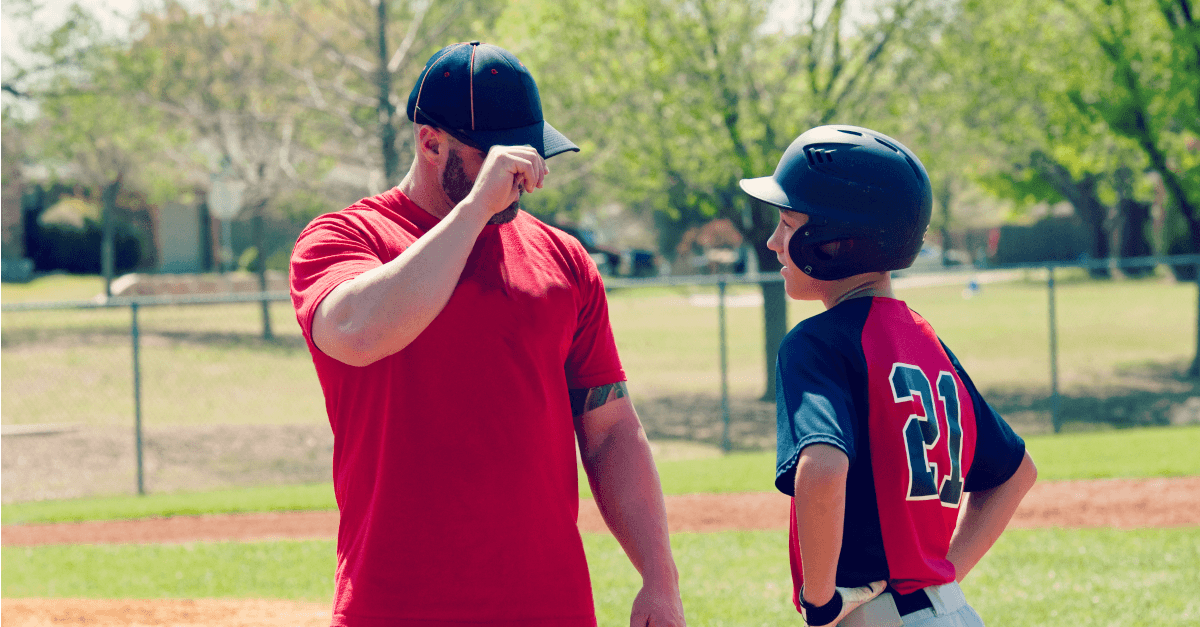Inside:Soft Skills for Teens and Tweens. Raising Independent Kids.
Recently we were at a birthday party for some family friends. It was an older couple and many of the other guests were several decades older than my husband and I. Our children, ages 6,9,12 and 15 were probably the only ones there under the age of 35.
As the evening went on, many of the attendees engaged my children in the conversation that is typical of a big age gap.
The most popular questions included, “What are your favorite subjects in school?” “Do you play any sports?” and to my teenager a few even ventured bolder inquiries such as “Do you have a boyfriend?” (asked with a little wink and a sly smile) and “Have you started to think about college?”
I hovered a bit, primarily out of my own curiosity about how they would answer. But for the most part, I left them on their own to manage the interrogations.
As the night went on, several of the people made a point of coming over to us and complimenting our children. You want to know the number one thing they said to us?
“It was so nice that your children made eye contact with us when they spoke.”
This was generally then followed by statements about how young kids today are so busy looking down at those $&!?% cell phones, they don’t even know how to look a person straight in the eye anymore!
I was not surprised by what they had to say.
There is a lot of talk about today’s younger generations and the basic life skills they are missing. But often when most parents think of life skills, it is tasks like doing their own laundry or knowing how to actually prepare a basic meal that are the kinds of things that come to mind.
Now, those are absolutely important skills. If our kids can’t feed themselves, they aren’t going to survive long on their own.
But we want our kids to do more than just survive, right?
We want our kids to thrive as adults. And to do that, they need to know more than how to run the dishwasher or prepare mac and cheese.
This is where soft skills come in and it’s the number one thing that everyone from teachers and coaches to professors and employers are saying our kids are lack.
What exactly are “soft skills?” They basically include all the ways in which we interact with other people as well as the character traits that enable someone to navigate their world and meet goals in an effective way. Some people simply call it common sense, but it’s a little more than that.
Also, there is a myth that these are characteristics people are born with and that can’t be taught, but that is not true at all.
There are plenty of ways we can nurture these skills in our children from toddlerhood to teenagerdom.
9 Essential Softs Skills for Teens and Tweens
10…9….8…7….you’re getting closer and closer to launch day for these precious teens and tweens of yours. You want them to be able to proudly stand on their own two feet and show this world all that they can do. Here are the 9 soft skills for teens and tweens that will be essential to their success.
Communication
“Words are singularly the most powerful force available to humanity.”
– Yehuda Berg
It was a big privilege at my house growing up, the day you were finally allowed to answer the phone! My sister and I were coached in taking a message and all the right phrases to say, “My Mom’s not available right now, may I take a message?” or “Hello, yes, she’s right here!”.
Tweens and teens today communicate in more ways than any other generation in history.
Technology has opened exciting doors with email, texting and social media. In all of these advances, kids rarely use the telephone anymore, yet phones are still a large part of corporate America.
My daughter’s teacher was telling me the other day how no one in her 10th grade homeroom knew how to properly answer the landline phone in their classroom last year. They’d pick it up, say hello and then look rather puzzled and hand it to the teacher.
Good communication skills go beyond phone dialogue: knowing when to ask for help, basic small talk, being clear and concise in face to face interactions, not just digital ones, are key for anyone’s success.
Eye Contact
“The majority of teenagers don’t even make eye contact with people, even people of the same age.”
– Saoirse Ronan
Another HUGE element of communication is being able to look someone in the eye when talking to them.
Have you ever interacted with some of your children’s friends and when you say “hi” or ask a question, they stare at their feet or look away when answering you? Many parents dismiss this as their kids simply being shy or they write it off as immaturity. Rarely are these the real reasons.
Just like teaching your child to say “please” and “thank you”, eye contact is part of basic manners that must be taught, encouraged and reinforced. As children get older and they aren’t able to do this, it will negatively impact they way they are perceived in all areas of their life.
By middle school children should be able to do the following, while maintaining good eye contact:
- Greet guests when they come to your home (friends, family, the mailman, whoever..)
- Order their own food at restaurants
- Approach teachers with concerns or questions
- Give oral presentations in school
- Talk to their peers (yes, they should be looking at their friends when they talk to them)
- Engage adults in social situations such as church, parties, school functions, etc.
- Answer for themselves at appointments such as the doctor, the dentist or even at hair appts.
Advocate For Themselves With Authority Figures
“I learned a long time ago the wisest thing I can do is be on my own side,
be an advocate for myself and others like me. “
– Maya Angelou
During the elementary years, we take on most of the responsibility for stepping in when our children are struggling in school or on a sports team and talking with the adults involved. But as our children head into the middle school years, it’s time for us to start backing off and letting our children mange these relationships on their own.
For instance, when my daughter was a 7th grader, she struggled with managing a large project. She didn’t seem to understand the parameters required for an assignment that would count for 45% of her science grade.
I repeatedly encouraged her to seek clarification from the teacher on her own, even though I could easily have sent a quick email to resolve the questions. She was resistant at first, but when she realized I wasn’t going to intervene, she stepped up and sought the answers she needed.
Now, I was willing to let her face the natural consequences(a poor grade) if she chose not to pull it together. This can be difficult for any parent, but I was convinced the long term benefit towards her independence outweighed a subpar middle school grade.
Now that this same daughter is in high school, I rarely communicate with her teachers as she know it is her responsibility to seek help with any issues she is having.
Sports is another great place to learn advocacy.
Let’s say your son is not getting the field time he once was?
Encourage him to approach the coach in a non-confrontational and ask about the reduction in playing time and what he needs to do to change that situation.
Chances are, the coach will be more than willing to provide a reason and suggestions for improving. The next steps are on his shoulders. He can take responsibility to meet those expectations or ignore the feedback and suffer the resulting natural consequences.
Flexibility/Teamwork
“The ability to recognize opportunities and move in new – and sometimes unexpected – directions
will benefit you no matter your interests or aspirations.”
– Drew Gilpin Faust
Being able to adapt to changes in schedule, assignments and the ability to easily switch gears, allows your tween and teen to be a team player.
This can be difficult to flat out “teach” your child, but life generally throws enough curve balls that’s it’s not impossible to model.
Sports can be a wonderful place to hone this skill. Playing various positions, dealing with weather delays, coaching decisions and even learning to “ride the bench” are all markers on the flexibility journey.
This translates to being able to deal with deadline shifts, reassignments of responsibility and business practices in the corporate world.
Having a strong willed, creative, idea driven child has also shown me that sometimes we have to help our kids be able to accept and value ideas that aren’t her own.
Being open to new methods and other ways of accomplishing a goal are things she has had to work on throughout middle school. Humbling herself to the realization that her way isn’t always the right way or the only way has been a difficult lesson. But it’s taught her how to work better with others and certainly made her group project experiences far more positive.
Taking it a step further
we have tried to help him learn to be proactive and go beyond just the minimal expectations when it comes to his chores.
we’ve explained that If he sees the carpet needs vacuuming when it’s not his assigned day, he’s still expected to take care of it(initiative). This is an ongoing conversation and training process at our house, he’s not perfect at this but he’s way better than when he started.
Resilience and Problem Solving
“In order to succeed, people need a sense of self-efficacy, to struggle together with resilience to meet the inevitable obstacles and inequities of life.”
– Albert Bandura
Stress is a part of life. Mistakes, failure, unpleasant classmates and teachers and even tragedy and loss will be experiences that are inevitable for most of our children.
It is tempting to want to shield them from as much of this as possible and to intervene on their behalf when they are frustrated or hurt or struggling. We want our kids to be happy.
But in our attempts to make sure our children’s lives are always happy and pain free, we send our children unintended messages.
Our interference says loud and clear that we don’t have faith in them to solve their own problems. That we don’t believe they are strong enough to handle hard things. Or in some cases, that others are to blame for their shortcomings.
The result of our good intentions is kids who are fearful and give-up easily or who end up entitled and irresponsible.
Related: 5 Ways to NOT Raise Entitled Kids
At some point, we must give our kids the chance to develop the necessary coping skills to manage the ups and downs of life. When we do, the result is confident kids who feel empowered to tackle even the toughest situations.
Work Ethic
“Working hard becomes a habit, a serious kind of fun. You get self-satisfaction from pushing your self to the limit, knowing that all the effort is going to pay off.”
– Mary Lou Retton
Employers are increasingly concerned at the lack of work ethic seen in young professionals entering the workforce. They show up late, miss deadlines, and often don’t want to put in the extra time and effort that is sometimes required to make sure a job gets done right. Yet, they expect promotions they haven’t earned and compensation at the levels of peers with far more experience.
College professors and high school educators see the roots of this in their classrooms. They are quick to point out that their students often only work to meet the basic requirements of an assignment, rather than striving to do their best work. Also, due to grade inflation and parental pressure, children are often awarded grades that aren’t deserved.
Even in sports, we often give trophies to everyone regardless of their commitment level or performance.
Whether in school, on the field or climbing the corporate ladder, being dependable, showing initiative and going above and beyond to deliver your best possible work are the keys to real success. It’s also how one finds real satisfaction and fulfillment.
One of the best ways to teach a good work ethic is via chores.
For instance, my 6th grade son is responsible for the vacuuming at our house. He is required to complete it twice a week, Tuesdays and Saturdays, with no reminder from me(showing dependability).
Does he enjoy vacuuming. Um, No. Does anyone really? But it’s his responsibility and if it’s not completed, he loses a privilege.
Related: 10 Tween Chores Your Middle Schooler Needs For Survival
Responsibility/Organization
“The price of greatness is responsibility.”
– Winston Churchill
If all goes according to plan, someday in the future this child of yours should grow-up, get a job and be able to take care of himself. It’s scary and something many of us don’t want to think about. But preparing our kids for this eventuality is kind of a fundamental part of the parenting job description.
Luckily, we have somewhere between 18 and 21 years, give or take, to get them there.
The road to self-sufficiency starts when they are very young with simple things like teaching them to dress themselves, having them pick-up their toys and getting them to help with family chores.
But as they move into their tweens and teens, our expectations should begin to greatly increase. This is when they need to begin taking on a much bigger role in managing their own lives.
Setting an alarm and getting themselves up in the morning. Keeping track of their own school schedule and homework due dates. Remembering when they have practice and being able to get all their own gear together. These are all reasonable expectations for kids in middle and high school.
Of course, little bit of grace or an occasional reminder is okay.
But we should not be jumping in to save our kids when they aren’t stepping up.
It’s suffering the consequences of being late to school, a poor grade for a missed homework assignment or being benched for coming to practice without their uniform that will motivate them to do better next time.
As moms, it is difficult to watch our kids mess up. but we know we won’t be following them to college, setting their alarms and shooing them out the door so they don’t miss biology class.
Our goal is to raise an independent adult and this is one key step on that path.
Conflict Resolution
“If you have learned how to disagree without being disagreeable, then you have discovered the secret of getting along–whether it be business, family relations, or life itself.”
– Bernard Meltzer
I can’t even tell you the number of times when my daughter was little, I would hear the words “well then I’m not going to be your friend anymore,” after she and one of her besties had a disagreement.
In the world of five-year-olds this is to be expected and most of the time. Plus, most of the time, five minutes later they’ve made up and all is forgotten.
Unfortunately, as they get older, this method of dealing with people who have upset or angered them becomes less and less effective.
It is also as our children become tweens and teens, that they go through what will probably be one of the most drama-filled and conflict ridden stages of their life. So, it’s ripe with opportunity for lessons in conflict resolution.
Teaching them how to handle conflict is essential. It’s knowing when to just walk away, but that means gracefully refusing to engage, not stomping away or running to their bedroom and slamming the door. And it knowing when to stay and fight. But by fight, we mean having a reasonable discussion with a proper tone of voice using language that isn’t peppered with four letter words.
While teaching such self-restraint to a hormonal adolescent may seem daunting, remember it doesn’t have to happen overnight.
You will be surprised how many great examples there are to show them in day to day life.
You and your spouse are the primary role models for them. Don’t be afraid to let them see you disagree and how you are able to work things out. TV shows are also an excellent teaching ground. As you watch shows together, ask them questions about how they think characters handled certain encounters with other characters.
When it comes to conflicts in their own relationships with siblings, friends or teachers, coach them through positive ways to handle these interactions. If it is sibling arguments, instead of jumping into the middle, encourage them to figure it out themselves. I often tell my kids that they will be far happier coming up with a solution on their own, then they will be if I get involved. And they will tell you from experience, I’m usually right about this one. (Cleaning toilets together is no fun)
As for their peers or adults in their lives, coach them through potential scenarios, have them write-down what they might say or even role play it with them.
Take Risks
“During the first period of a man’s life, the greatest danger is not to take the risk.”
– Soren Kierkegaard
This one can sound scary, but the ability to take calculated risks is one of the most essential soft skills for teens and tweens. At this point in their lives, they need to be asserting their independence and trying new things. We simply need to be there to pick them up if they fall, dust them off and send them right back at it.
Talk to any successful entrepreneur or professional and they’ll tell you they’ve had to take a variety of risks to get where they are today.
I encourage this in my kids in a number of ways. They have gone out for various sports, auditioned for theater productions, and we are always challenging them to try new things (foods, speaking up more in class, a physical challenge).
Most importantly, my husband and I model this in our lives.
For example, I’m not an athletic, outdoorsy person but every Summer we vacation in the mountains. I enjoy sitting on a peaceful porch, reading a great book, and reveling in the cool temperatures when it’s 100 degrees back home in Florida.
However, I plan a couple adventurous activities each year to demonstrate risk taking to my children.
We’ve gone hiking and gotten lost for hours. Then there was white water tubing(imagine white water rafting but in an inner tube…slightly crazy). We’ve jumped off giant boulders into freezing waters.
Not every experience was stellar and we certainly enjoyed some far more than others. But we were never sorry we gave it a go.
By going outside my comfort zone, I’ve shown my children it isn’t so scary.
Now they are much more willing to do so all on their own (which is whole other version of being outside my comfort zone!)
6….5….4…3…2…1. We have lift off!!!
If you found 9 essential soft skills for teens and tweens useful, you should also check out these posts:
Disrespectful Teens or Tweens; 5 Effective Ways to End the Attitude Today!
10 Books Every Parent Needs to Survive Tweens and Teens
Why We Need to Stop Tech Shaming Our Kids













Lacey Montgomery says
There is so much to teach kids. I felt unprepared to grow up when I was a teenager. I don’t want kids to go through that either.
Here are more good resources: https://yourccl.org/222/Adulting-101-Resources I keep them bookmarked until I need them. The most important thing is to teach them how to be independent and how to protect themselves.